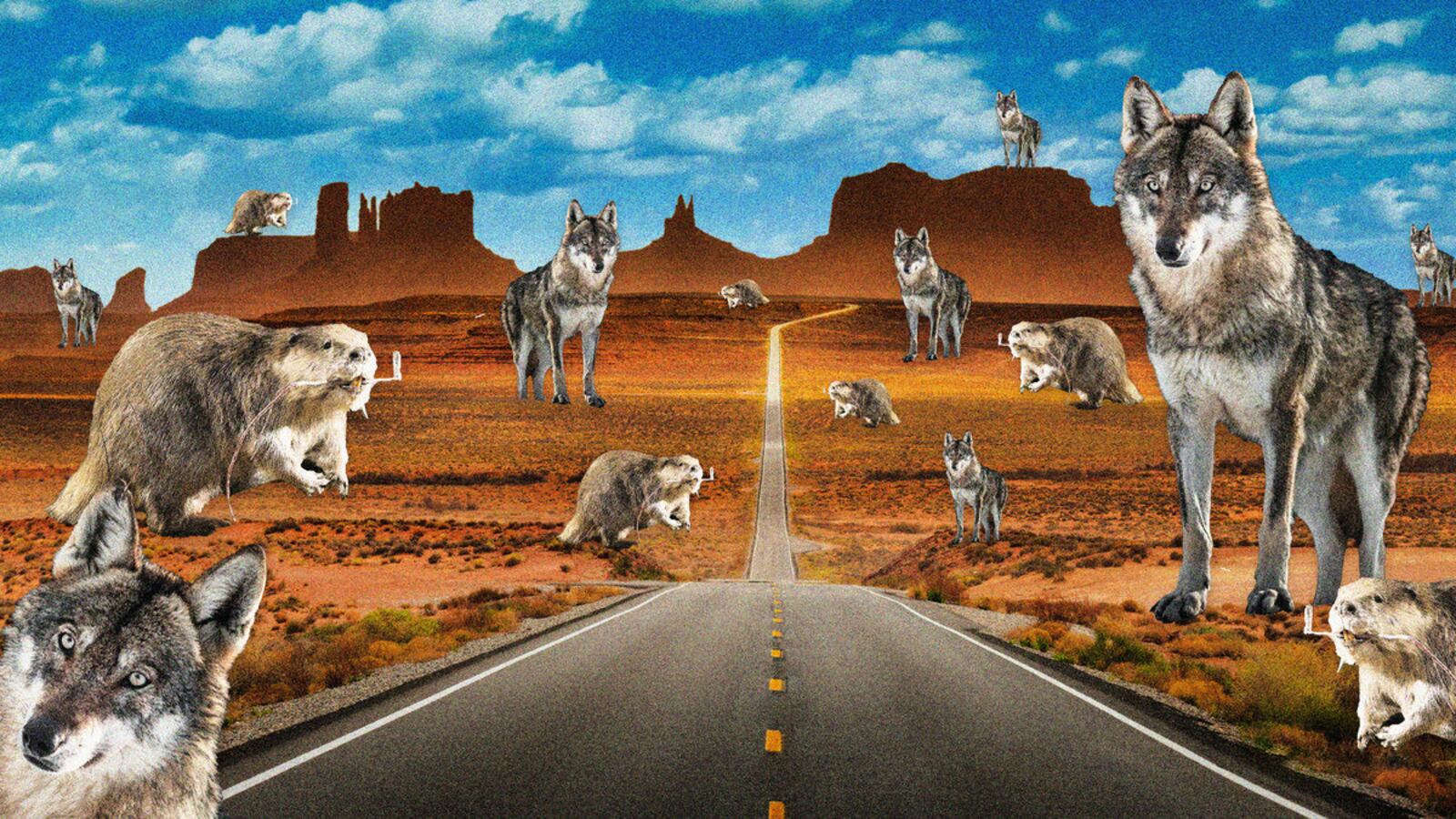The American West isn’t exactly doing so hot—partly because it’s feeling too hot. Between the near constant wildfires, drought, and heatwaves, an area that was once teeming with wildlife and native fauna is now experiencing a staggering amount of ecosystem loss.
But, researchers at Oregon State University have a bold proposal to help enrich these habitats: Fill them with beavers and wolves.
In a paper published on August 9 in the journal BioScience, the OSU team proposed using federal land in 11 states in order to establish a new system of wolf and beaver habitats in a process called The Western Rewilding Network. The plan would cover roughly 500,000 square kilometers across Arizona, California, Colorado, Idaho, Montana, Nevada, New Mexico, Oregon, Utah, Washington, and Wyoming.
In its new paper, the OSU team wrote that wolf and beaver species play a crucial role in the native ecosystems. For example, gray wolves are an apex predator that naturally cull populations of elk that would otherwise reproduce out of proportion and eat native plants. Meanwhile, beavers take down trees to build dams, helping fish habitats flourish and maintaining water flows during drought.

Gray wolves are an apex predator that naturally cull species that would otherwise negatively impact native ecosystems.
JOHN MORRISON via Getty“It’s an ambitious idea, but the American West is going through an unprecedented period of converging crises including extended drought and water scarcity, extreme heat waves, massive fires and loss of biodiversity,” William Ripple, an ecologist at OSU and lead author of the paper, said in a press release.
The study’s authors also noted that the plan would only work if people also target one of the most common threats to native wildlife and fauna in the American West: livestock grazing. The practice often hinders wildfire management, causes waterway degradation, and makes it difficult for natural fauna to grow. As such, the team proposes reducing land allocated for grazing by 29 percent from a total of 985,000 square kilometers of federal land in the 11 states.
It’s worth noting that 2 percent of meat production comes from federal grazing permits in the U.S., so the reduction would do little to impact the industry overall. The study’s authors recognize that the proposal is still very bold and ambitious, however. To address these issues, there would need to be buy-in from communities that live in the West along with policymakers at large.

Beavers help enrich waterways and fish habitats when they build dams out of native fauna.
Chase Dekker Wild-Life Images via Getty“That means we need an economically and socially just federal compensation program for those who give up their grazing permits,” Robert Bescheta, a former forestry professor at OSU and co-author of the paper, said in the release. “Rewilding will be most effective when participation concerns for all stakeholders are considered, including Indigenous people and their governments.”
If and when it does happen though, we could see native habitats flourish over time as a result. Let’s just hope the wolves and beavers don’t grow too out of control, lest we have to grapple with our new furry overlords.






